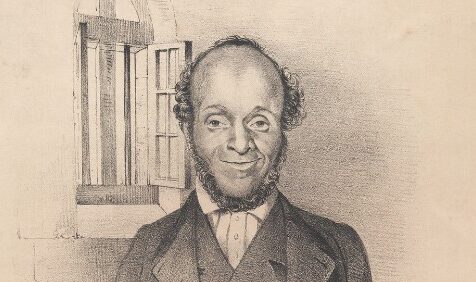A BRITISH historian has called for William Cuffay, the son of a freed slave from St Kitts, who played a key role in the struggle for democracy in Britain, to be honoured with a statue in Parliament Square.
Writing in Tribune magazine, Tom Scriven, a Chartist historian at the University of Manchester, said: “A country which respected its history would honour him rather than the men who sold his ancestors. There can only be one candidate for a memorial to Chartism’s leaders: William Cuffay.”
Born in Chatham in 1788, Cuffay was the son of a freed slave from St. Kitts, himself the son of a man kidnapped from Africa and sold into slavery.
Cuffay’s father, Chatham Cuffay, was a cook aboard a British warship. Born with a shortened spine and legs, Cuffay trained as a tailor and by 1819 had moved to London, settling in Westminster where he lived most of his life.
Twice-widowed in the 1820s Cuffay married his third wife Mary Ann at St. James’s Piccadilly in 1827, with the couple becoming life-long companions and comrades.
He became drawn, after some initial antipathy, into labour organisation, as increasing competition and a large labour surplus led to low-paid and sweated conditions for tailors.
He joined in the Tailors’ Strike of 1834, but in the aftermath was blacklisted, and would never find regular employment again.
By 1838 working-class radicals had split from the emerging Liberal Party to form the Chartist movement, and Cuffay became one of the organisers of the Metropolitan Tailors Chartist Association.
In 1840 the National Charter Association (NCA) was formed as the party of the Chartists, and Cuffay became their premier and most trusted organiser, both in London and nationally.
In 1841 he was elected by Westminster’s Chartists to the Metropolitan Delegate’s Council, beginning a long period as one of London Chartism’s chief leaders.
London’s elite directed racist derision at him, with The Times referring to the London Chartists as ‘the Black man and his Party’.
In 1842 Cuffay was elected to the NCA’s National Executive – meaning that within two years of its founding, the world’s first proletarian party had a Black leader.
Cuffay was proud of his African descent, refusing to abandon his surname, an anglicisation of the Akan name Kofi. He was also explicit that internationalism and anti-slavery were integral to his understanding of Chartism.
Along with a number of African-American refugees from slavery resident in Britain from the mid-1840s onwards, Cuffay was part of a broader wave of Black political activism that stressed the need for racial solidarity and the integration of abolition with all other struggles for liberty.
Cuffay was arrested during the revolutionary wave of 1848. At his trial he denounced the racist abuse he had received over the years. Found guilty and sentenced to transportation for life, he was sent to Van Diemen’s Land (now Tasmania) the following year.
He was only reunited with his wife four years later in April 1853. Cuffay was pardoned in May 1856, after which he immersed himself in the Australian labour movement until his death in 1870, aged 82.
Scriven said: “A celebration of Cuffay’s life in Parliament Square would not only challenge the implication that democracy was a gift from the elite, but also confront Parliament directly with the reality of slavery.
“With that it would also demolish two of the right’s core myths: that the Black British population has no long-term history, and that Black people did not fight for their own liberation – and with that the liberation of all.
“In honour of that moral worth, and of the sacrifices he gave for the radical cause of democracy and equality in Britain and abroad, it’s time to erect a statue of William Cuffay in Westminster.”
By Shirin Aguiar


Comments Form